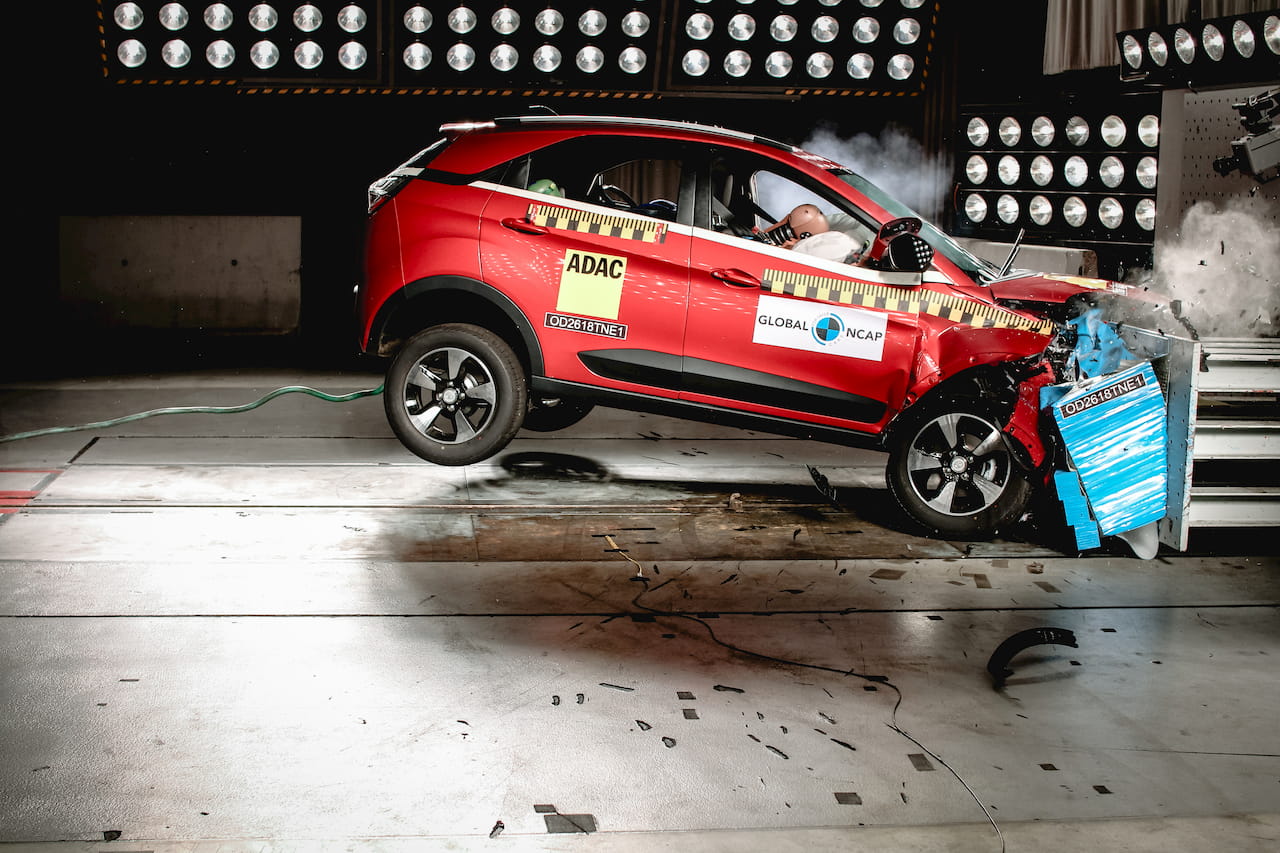While Maruti Suzuki and Hyundai cars repeatedly fail to meet the Global NCAP safety standards, Tata Motors and Mahindra, the two leading OEMs in the electric car sector, are quickly catching up. However, the job is not done for these companies as the Global NCAP safety standards is set to get more challenging by 2022, as per a new report released by autocarindia.com.
Global NCAP is a project of the UK-based charity Towards Zero Foundation (TZF). Alejandro Furas, Vice President, Technical Affairs & Secretary General, Global NCAP, recently revealed that a new protocol was going to be implemented for Global NCAP in January this year, but it has been postponed to January 2022 because of the COVID-19 pandemic.
The new protocol is yet to be finalised, but one of the areas of evaluation brought with it could be the inclusion of Electronic Stability Control (ESC) in the car, Furas revealed. He also stated that the new protocol will “definitely” lead to the side impact test becoming standard. Currently, only 5-star rated cars undergo a side impact test as standard, and alternatively, automakers can submit their cars for a side impact test voluntarily.
India has its own crash-test programme called Bharat New Vehicle Safety Assessment Programme (BNVSAP). Manufacturers may not stop getting cars certified by Global NCAP in the future as the more stringent safety standards of the agency are likely to instill further confidence in customers about their safety and quality now that awareness is spreading widely on this subject.
We expect Tata Motors and Mahindra to continue developing their cars as per the latest Global NCAP safety standards. Expect upcoming EVs targeting private car owners (and those who are thinking of switching over from petrol vehicles) such as the Tata Altroz EV, Tata HBX EV and the Mahindra eXUV300 to have a Global NCAP safety rating soon after the launch.
It is to be noted that cars don’t have to be certified by GNCAP to be eligible for sales in India.

![Will the launch of the Tata HBX EV get pushed to 2023? [Update]](https://electricvehicleweb.com/wp-content/uploads/2020/12/Tata-HBX-H2X-Hornbill-interior-dashboard-spy-shot-350x166.jpg)
![Everything we know about the upcoming Tata Altroz EV [Update]](https://electricvehicleweb.com/wp-content/uploads/2020/02/Tata-Altroz-EV-side-view-1-Auto-Expo-2020-350x234.jpeg)
![New Tata Safari a serious candidate for an electric vehicle [Update]](https://electricvehicleweb.com/wp-content/uploads/2021/02/Tata-Safari-EV-350x242.jpg)